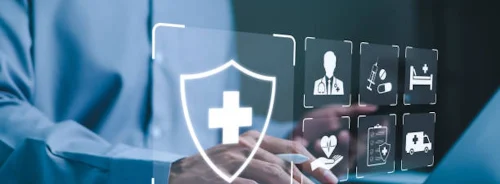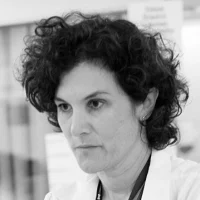ICUsteps was founded in the UK by 2005 by ex-patients, their relatives and ICU staff to support patients and their families through the long road to recovery from critical illness.
ICUsteps is the only support group for people who have been affected by critical illness and has helped many former patients, their relatives and medical staff from organisations around the world.
1. What are your key areas of interest and research?
As a patient organisation our main areas of interest are:
2. What are the major challenges in your field?
Although things are slowly improving, one of the greatest challenges is educating healthcare professionals that recovery from critical illness doesn’t end on discharge from the ICU, or even hospital; it takes far longer than that. Many patients face physical and psychological issues that occur as a result of their critical illness, and support and rehabilitation is essential in dealing with this. Rehabilitation still seems to be regarded by healthcare commissioners as a luxury or a ‘cherry on top’ rather than the fundamental part of the care pathway it should be.
Other major issues we face, which rehabilitation also has a role in, is poor continuity of care. Despite many of us experiencing awful delusional memories of the ICU, patients and relatives almost universally appreciate the professionalism and dedication of critical care staff in making it a place where you know you’re being cared for and looked after. The step-down in care to a general ward is more of a plummet, where some ward staff regard ICU patients as cosseted, troublesome or needy and almost all of them fail to understand the severity of their illness and issues to be faced following critical illness. The step-down in care from hospital back to the home can be almost as bad, with patients sometimes so weak they can’t even lift a ceramic cup of tea and visiting their GP often to find their doctor is unaware they’ve even been in critical care, have no meaningful notes to refer to and like the ward staff are entirely unaware of the sequelae of critical illness that are well known to those in the specialism.
3. What is your top management tip?
As a charitable organisation run entirely by volunteers and with no paid staff, management is rather different to other organisation structures. Everyone who volunteers does so because they have a desire to help and make a difference. Having empathy with that desire and giving all volunteers an option to contribute and at least feel they’ve been heard even when their idea isn’t followed up on, is key to maintaining unity. Everyone has something to offer and the challenge is ensuring those with the right skills are given the opportunity to use them to their greatest value.
4. What would you single out as a career highlight?
I’d have to say the highlight was the success of our booklet Intensive Care: a guide for patients and relatives, which started out in 2008 as a desire to provide high quality, consistent patient information and to save staff from duplicating effort in writing leaflets in units up and down the country. We never imagined in our wildest dreams that eight years on that booklet would be regarded by intensive care professionals as the de facto standard for critical care patient information, not just in the UK but beyond with 150,000 copies distributed to UK hospitals, translation into 16 languages* and adaptations for use in 13 countries around the world.
5. If you had not chosen this career path you would have become a…?
…a statistic. My paid job is that of a front-end web developer but my role in co-founding ICUsteps came from being fortunate enough to survive a mountain biking accident in woods near Milton Keynes where I sustained injuries including a subarachnoid haemorrhage, compound fracture of T6&7 and bilateral pneumothorax with aspirated stomach contents. During my three weeks in critical care, and afterwards I was affected badly by delirium and other psychological issues which I now understand to be normal but which at the time were terrifying. When you’ve been lucky enough to survive an experience like that, you feel compelled to use the insight you’ve gained through the process to help others and repay the debt of gratitude we owe to those professionals who worked so hard to ensure our survival.
6. What are your personal interests outside of work?
Outside work, much of my time is spent on ICUsteps but I’m also a fan of The Dandy Warhols and find time to see them play whenever they visit Europe and I still enjoy riding my bike, though spinal cord damage means I can’t go off-road like I used to (though my wife sleeps a little easier knowing this).
7. Your favourite quote?
As it sums up the critical care patient experience, particularly the psychological aftermath, my quote would come from Rutger Hauer playing Roy Batty in the film Blade Runner “I’ve seen things you people wouldn’t believe."
* Arabic, Bengali, Chinese, Danish, Dutch, English, French, German, Hindi, Norwegian, Polish, Punjabi, Spanish, Swedish, Urdu - can be downloaded at http://icusteps.org/guide
ICUsteps is the only support group for people who have been affected by critical illness and has helped many former patients, their relatives and medical staff from organisations around the world.
1. What are your key areas of interest and research?
As a patient organisation our main areas of interest are:
- providing support and information to other patients and relatives affected by critical illness;
- promoting recognition of the physical, psychological and cognitive consequences of critical illness to healthcare professionals and the general public; and
- encouraging and supporting research into the treatment and prevention of these issues.
2. What are the major challenges in your field?
Although things are slowly improving, one of the greatest challenges is educating healthcare professionals that recovery from critical illness doesn’t end on discharge from the ICU, or even hospital; it takes far longer than that. Many patients face physical and psychological issues that occur as a result of their critical illness, and support and rehabilitation is essential in dealing with this. Rehabilitation still seems to be regarded by healthcare commissioners as a luxury or a ‘cherry on top’ rather than the fundamental part of the care pathway it should be.
Other major issues we face, which rehabilitation also has a role in, is poor continuity of care. Despite many of us experiencing awful delusional memories of the ICU, patients and relatives almost universally appreciate the professionalism and dedication of critical care staff in making it a place where you know you’re being cared for and looked after. The step-down in care to a general ward is more of a plummet, where some ward staff regard ICU patients as cosseted, troublesome or needy and almost all of them fail to understand the severity of their illness and issues to be faced following critical illness. The step-down in care from hospital back to the home can be almost as bad, with patients sometimes so weak they can’t even lift a ceramic cup of tea and visiting their GP often to find their doctor is unaware they’ve even been in critical care, have no meaningful notes to refer to and like the ward staff are entirely unaware of the sequelae of critical illness that are well known to those in the specialism.
3. What is your top management tip?
As a charitable organisation run entirely by volunteers and with no paid staff, management is rather different to other organisation structures. Everyone who volunteers does so because they have a desire to help and make a difference. Having empathy with that desire and giving all volunteers an option to contribute and at least feel they’ve been heard even when their idea isn’t followed up on, is key to maintaining unity. Everyone has something to offer and the challenge is ensuring those with the right skills are given the opportunity to use them to their greatest value.
4. What would you single out as a career highlight?
I’d have to say the highlight was the success of our booklet Intensive Care: a guide for patients and relatives, which started out in 2008 as a desire to provide high quality, consistent patient information and to save staff from duplicating effort in writing leaflets in units up and down the country. We never imagined in our wildest dreams that eight years on that booklet would be regarded by intensive care professionals as the de facto standard for critical care patient information, not just in the UK but beyond with 150,000 copies distributed to UK hospitals, translation into 16 languages* and adaptations for use in 13 countries around the world.
5. If you had not chosen this career path you would have become a…?
…a statistic. My paid job is that of a front-end web developer but my role in co-founding ICUsteps came from being fortunate enough to survive a mountain biking accident in woods near Milton Keynes where I sustained injuries including a subarachnoid haemorrhage, compound fracture of T6&7 and bilateral pneumothorax with aspirated stomach contents. During my three weeks in critical care, and afterwards I was affected badly by delirium and other psychological issues which I now understand to be normal but which at the time were terrifying. When you’ve been lucky enough to survive an experience like that, you feel compelled to use the insight you’ve gained through the process to help others and repay the debt of gratitude we owe to those professionals who worked so hard to ensure our survival.
6. What are your personal interests outside of work?
Outside work, much of my time is spent on ICUsteps but I’m also a fan of The Dandy Warhols and find time to see them play whenever they visit Europe and I still enjoy riding my bike, though spinal cord damage means I can’t go off-road like I used to (though my wife sleeps a little easier knowing this).
7. Your favourite quote?
As it sums up the critical care patient experience, particularly the psychological aftermath, my quote would come from Rutger Hauer playing Roy Batty in the film Blade Runner “I’ve seen things you people wouldn’t believe."
* Arabic, Bengali, Chinese, Danish, Dutch, English, French, German, Hindi, Norwegian, Polish, Punjabi, Spanish, Swedish, Urdu - can be downloaded at http://icusteps.org/guide










